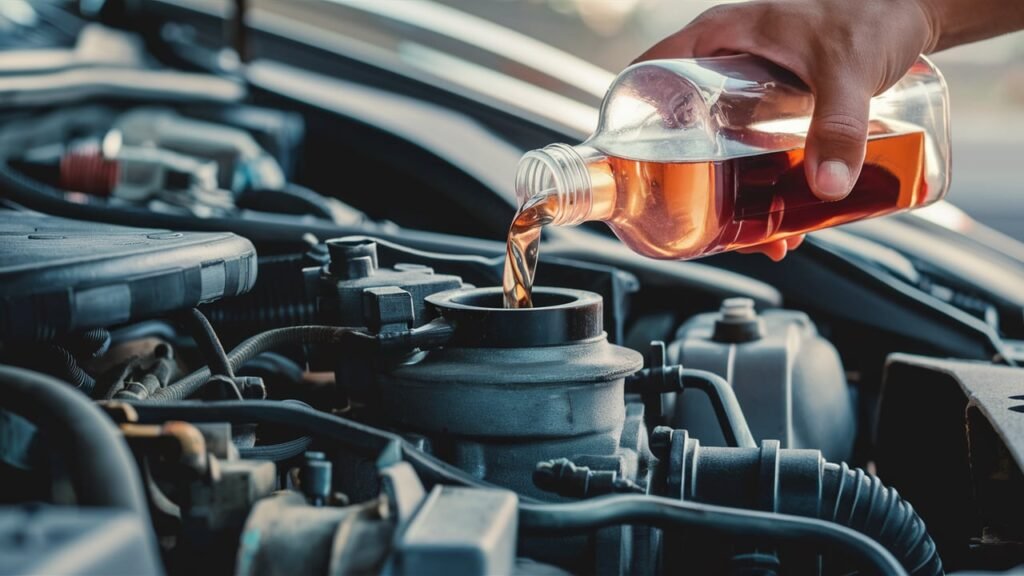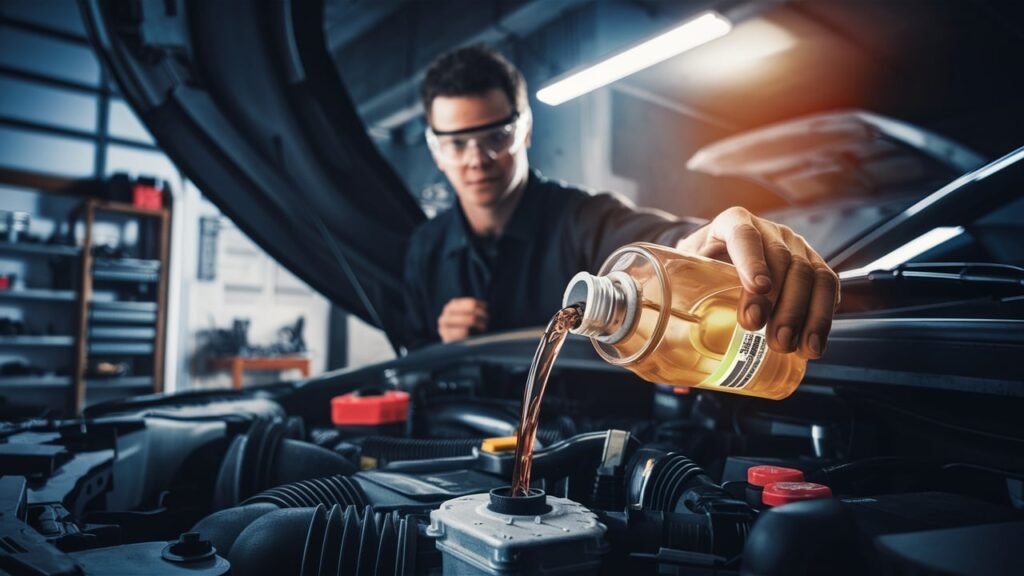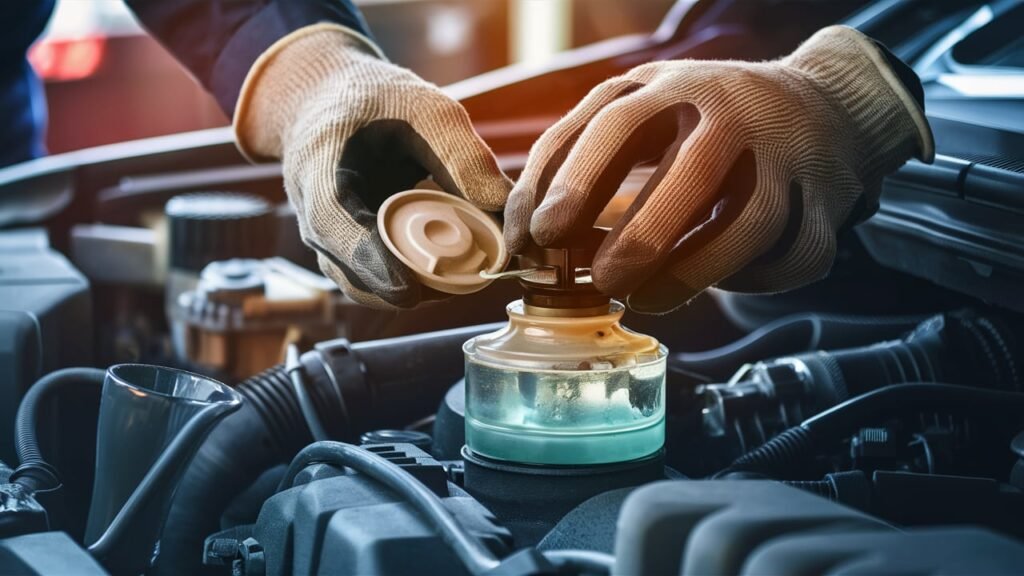
Understanding the Factors Causing Slow Car Engine Warm-Up
Why Does This Happen?
A slow car engine warm-up can be frustrating, especially on cold days. There are several factors that can contribute to this issue. Here are some common causes:
- Low or Dirty Coolant:
- Coolant levels that are too low or dirty can hinder the heater core’s ability to generate heat, leading to a slow warm-up.
Faulty Thermostat:
- A malfunctioning thermostat can prevent the coolant from flowing properly, causing the engine to take longer to warm up.
Failing Radiator:
- A faulty radiator can lead to coolant leakage, which can cause the engine to overheat and take longer to warm up.
Heater Core Issues:
- A damaged heater core can prevent the engine from warming up properly, resulting in a slow warm-up
- .
Heater Blower Problems:
- Issues with the heater blower or fan motor can prevent warm air from circulating through the vehicle’s vents, contributing to a slow warm-up.
Coolant Pump Malfunction:
- A malfunctioning coolant pump can prevent the coolant from reaching the radiator, leading to a slow warm-up.
Clogged Radiator:
- A clogged radiator can prevent the coolant from flowing properly, causing the engine to take longer to warm up.
Fan Clutch Issues:
- A locked-up fan clutch can cause excessive airflow across the radiator, preventing the engine from reaching operating temperature quickly.
Engine Cooling System Leaks:
- Coolant leaks can reduce the coolant’s ability to flow through the engine, leading to a slow warm-up.
Engine Age and Mileage:.
To address a slow car engine warm-up, it is recommended to have the cooling system inspected and any issues identified and repaired.
Car engines, intricate mechanisms that power our vehicles, sometimes exhibit a puzzling behavior—taking an extended duration to reach optimal operating temperatures. This delay in warming up is not merely a quirk; it signifies deeper underlying issues within the engine’s functionality.
Understanding the reasons causing this sluggish warm-up process is essential for maintaining the health and efficiency of your vehicle over time. Delving into these factors unveils a world of technical intricacies that govern how efficiently our cars warm up and perform – a critical aspect often overlooked in routine maintenance routines.
In the realm of automotive maintenance, decoding the enigma behind slow car engine warm-up holds paramount importance. Not only does it shed light on potential malfunctions within the system but comprehensively grasping these contributing elements allows for precision in rectifying them.
By unraveling the complexities governing engine warm-up times, one gains valuable insights into enhancing overall vehicle performance and longevity. Join us as we embark on a journey through the intricacies of what causes a car engine to linger in its pre-operational phase, delving into factors crucial for maintaining vehicular health and optimizing performance levels.
Factors Affecting Engine Warm-Up Time.
One crucial factor that can significantly impact the time taken for a car engine to warm up is thermostat issues. The thermostat acts as a gateway between the engine and the cooling system, regulating the flow of coolant to maintain optimal operating temperature.
When a thermostat malfunctions, it may get stuck in either an open or closed position, impeding the proper circulation of coolant through the engine. For instance, if the thermostat remains closed, restricting coolant flow, the engine will struggle to warm up efficiently. This can lead to extended warm-up times and potential overheating issues if left unaddressed.

Another key element influencing engine warm-up time is maintaining adequate coolant levels. Coolant plays a vital role in absorbing heat from the engine and dissipating it through the radiator. Low coolant levels can disrupt this heat transfer process, affecting the engine’s ability to reach its optimal operating temperature promptly.
For example, if there is insufficient coolant in the system due to leaks or neglecting regular top-ups, the engine may take longer to warm up, compromising its performance and potentially leading to overheating under extreme conditions.
External weather conditions also play a significant role in determining how quickly a car engine warms up. Ambient temperature influences how well an engine can generate heat internally and maintain its operational efficiency.
In colder climates, engines require more time to reach their optimal temperature compared to warmer environments due to greater heat loss to the surroundings. For instance, during frigid winter months, engines exposed to sub-zero temperatures will take longer to warm up as they battle against external cold that saps away heat energy generated during combustion processes.
Understanding these factors that affect engine warm-up time provides valuable insights for diagnosing and addressing slow warm-up issues in vehicles. By recognizing how thermostat malfunctions, coolant levels, and ambient temperatures impact this critical process, mechanics and car owners can take proactive measures to ensure efficient engine performance from startup onwards.
Addressing these factors not only improves overall vehicle reliability but also contributes to enhanced fuel efficiency and reduced emissions output over time.
Effects of Slow Engine Warm-Up.
Prolonged warm-up times can significantly impact a vehicle in various ways. One notable effect is the increased wear and tear on engine components. When the engine takes longer to reach its optimal operating temperature, there is greater mechanical stress on vital parts such as piston rings, cylinders, and valves.
This prolonged exposure to friction can accelerate the wear process, potentially leading to premature component failure. For instance, inadequate lubrication during extended warm-up phases can result in heightened friction between moving parts, hastening their degradation over time.
Another consequence of slow engine warm-up is reduced fuel efficiency. During the initial stages of operation when the engine is cold, it operates less efficiently than when it reaches its ideal temperature. As a result, the combustion process may be incomplete, causing higher fuel consumption per mile driven.

This inefficiency not only impacts the driver’s wallet but also contributes to unnecessary carbon emissions released into the environment. By understanding the link between slow warm-up times and increased fuel usage, drivers can make informed decisions to improve their vehicle’s efficiency.
Furthermore, slow engine warm-up phases can lead to higher emissions output from vehicles. When engines operate below peak temperature levels for an extended period, they produce incomplete combustion which generates more pollutants in the form of carbon monoxide (CO), nitrogen oxides (NOx), and hydrocarbons (HC).
These emissions are harmful to both human health and environmental quality. By addressing factors that contribute to slow warm-ups promptly, such as thermostat issues or low coolant levels, car owners can help mitigate their contribution to pollution by ensuring proper engine performance from startup onwards.
Tips for Improving Engine Warm-Up Time.
When seeking to enhance engine warm-up times, adhering to specific best practices can significantly contribute to a smoother and more efficient warming process.
First and foremost, regular servicing emerges as a crucial step in mitigating potential issues that impede swift warm-ups. Through routine maintenance checks, mechanics can identify and rectify underlying problems promptly, ensuring that the engine operates optimally.
In colder climates or during winter months, the utilization of block heaters proves invaluable in preheating engines effectively.
Block heaters work by warming the engine coolant when the vehicle is not in use, enabling quicker heating upon startup. By integrating block heaters into their maintenance routines, car owners can alleviate extended idling periods while promoting faster warm-ups.
Moreover, considering an upgrade to the thermostat system can yield substantial improvements in temperature control mechanisms. A properly functioning thermostat plays a pivotal role in regulating the flow of coolant through the engine based on temperature variations.
By enhancing this component with modern alternatives or models tailored for superior performance, car owners can ensure precise temperature management and expedited warm-up durations. Investing in these upgrades exemplifies proactive measures aimed at optimizing engine efficiency and overall vehicle performance.
Ensuring Optimal Engine Performance.
In conclusion, to ensure optimal engine performance and address issues related to slow warm-up times, it is imperative to consider various factors. Properly insulating engines can significantly contribute to regulating temperatures more efficiently, allowing for quicker warm-up periods.
By minimizing heat loss and maintaining consistent operating temperatures, insulated engines can enhance overall performance and reduce wear on components.
Moreover, modern vehicles are equipped with efficient heating systems that are designed to shorten warm-up durations. These advanced systems utilize technologies that help engines reach operating temperatures faster, improving fuel efficiency and reducing emissions during the warm-up phase.
Additionally, seeking professional tuning services post-warm-up can further optimize engine performance by fine-tuning parameters to operate at peak levels efficiently. Embracing these strategies can not only mitigate the effects of slow engine warm-up but also prolong the lifespan of the vehicle while enhancing its overall efficiency and environmental impact.




